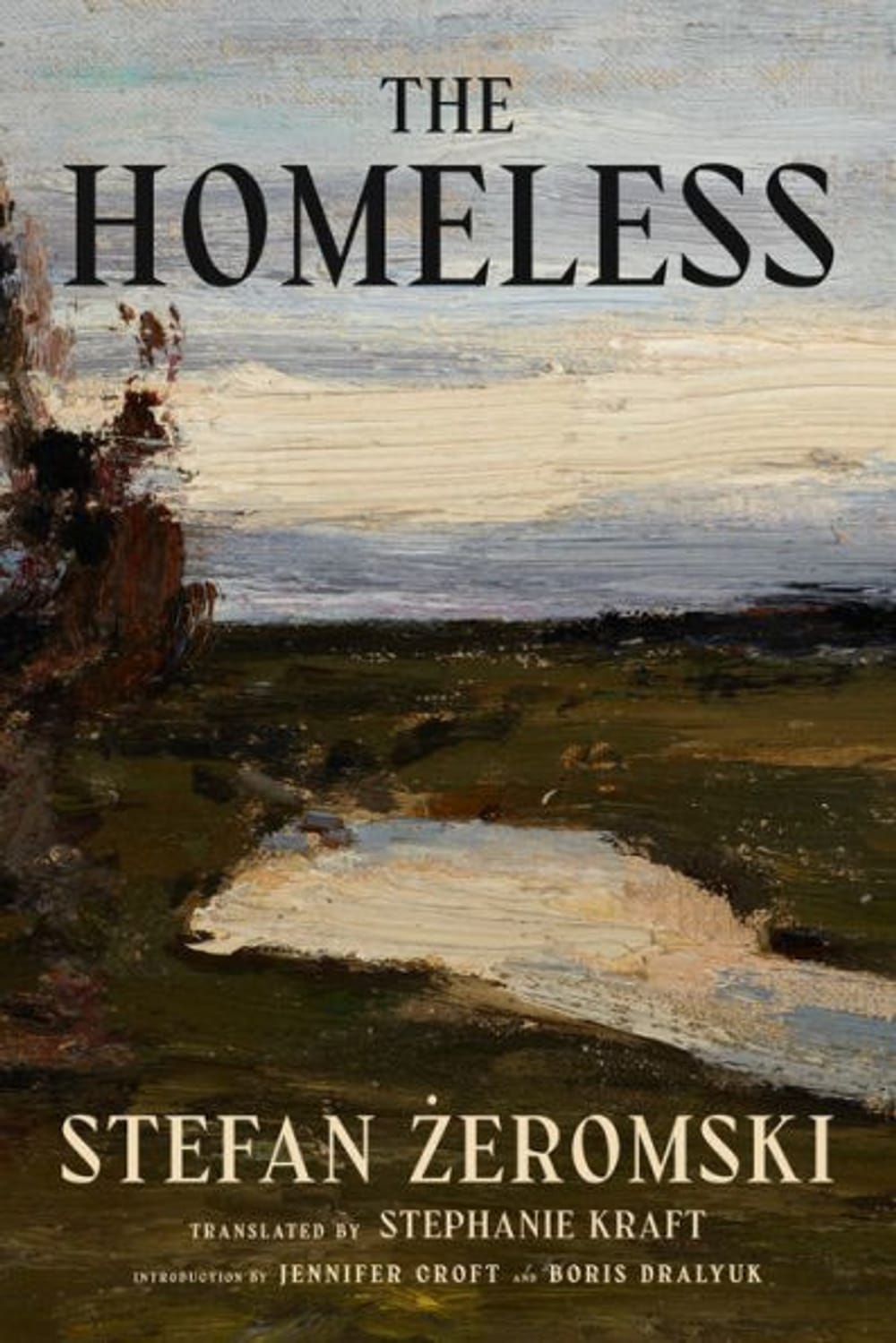Stay in the Loop
BSR publishes on a weekly schedule, with an email newsletter every Wednesday and Thursday morning. There’s no paywall, and subscribing is always free.
A Polish classic appears in English for the first time
The Homeless, by Stefan Żeromski; translated by Stephanie Kraft

It is the cusp of the 20th century. Tomasz Judym, a freshly minted doctor of working-class background, has just finished his studies in Paris and is returning to his homeland—to Warsaw, to be precise. In Stefan Żeromski’s enduring Polish novel (first published in 1900 and now in English for the first time thanks to translator Stephanie Kraft and Philly’s Paul Dry Books) Judym makes a bold medical and social proposition.
Confronted by the dull facades of slumping factories and insidious pollution, Judym approaches Warsaw’s well-heeled medical salon with a big idea: that it should be a physician’s responsibility not just to treat diseases arising from unsanitary conditions but to improve the conditions themselves. After all, he argues, if a poor factory worker develops lung abscesses from working with sulfuric acid, why shouldn’t a doctor be able to keep the sick person from returning to the source of the malady? Cannot doctors liberate themselves from the bedsides of wealthy clients and tend instead to the sickly masses?
Outrage ensues. And for the crimes of implying blinkered self-interest and distorting physicians’ mandate, Judym becomes an outcast, compelled to travel across Poland, first to the spa town of Cisy, then to the distant mining town of Zagłębie, in a search to reconcile Hippocratic idealism with industrial society and love with duty.
Human and natural landscapes
In their introduction to this edition of The Homeless, scholars and translators Boris Dralyuk and Jennifer Croft offer some historical context for readers unfamiliar with Polish literature or history (of which I am one).
The history comes in handy. For instance, knowing that Poland was partitioned between Russia, Austria, and Prussia from 1772 to 1795—and effectively dismantled as a sovereign nation for the next 132 years—provides a deeper perspective of the book’s human and natural landscapes, not to mention its title.
Ways with words
Żeromski’s novel and Kraft’s translation are richly descriptive, enough so that those who skip the introduction won’t realize what they’re missing. Żeromski writes with a style that conveys sweeping universalism while plucking vivid details. Of a factory in Paris, for example: “Between the gardens, the blackened walls and chimneys of a factory protruded here and there, like the repugnant torso and dead limbs of a parasite born of dirt and living in it.” Or of the Alps: “The highest summits were silvered with moonlight. Their sharp, fang-like peaks now had a gentle, human look. They seemed to be brooding, to be meditating and looking with stony eyes into the cloudless azure that was sown with stars.”
They’re the sorts of descriptions that make known features feel alien. And the travel of characters (not just Judym but also his paramour and his sister-in-law) across such an uneasy backdrop emphasizes the smallness of individual existence caught in the prevailing tides of fate.
In large part, Kraft’s translates with a melodious ease that carries readers along through the scenery, and she skillfully describes the industrial processes and settings that Żeromski lingers on. (Think precise layouts of streets in Warsaw or multi-page descriptions of the Bessemer process.)
A timeless conscience
The book’s cover notes that The Homeless is relevant today because of this backdrop of industrialization in its exploration of public health and economic inequality. As a book, sure—but as a classic, The Homeless weaves those themes with many more, bringing readers one man’s epic quest to reconcile his conscience to the world and escape with his soul. And it’s impressive.
What, When, Where
The Homeless. By Stefan Żeromski; translated by Stephanie Kraft. Philadelphia: Paul Dry Books, March 26, 2024. 315 pages, paperback; $19.96. Get it here.
Sign up for our newsletter
All of the week's new articles, all in one place. Sign up for the free weekly BSR newsletters, and don't miss a conversation.

 Helen Walsh
Helen Walsh